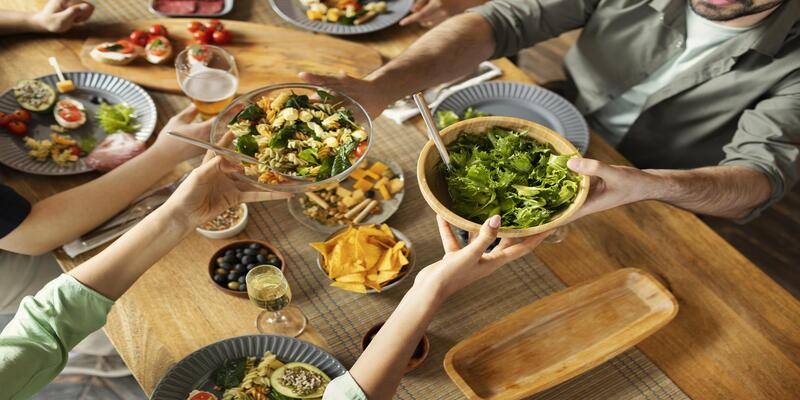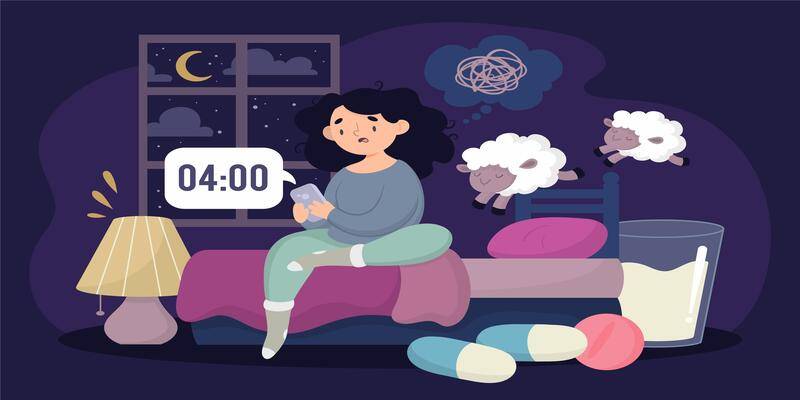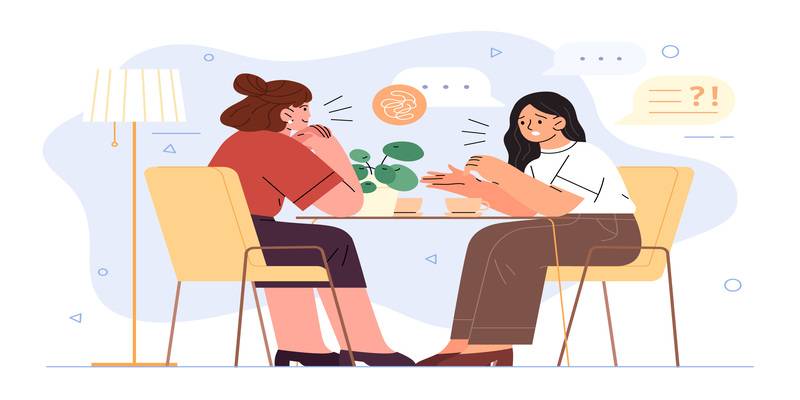Unfolding your relationship with food

My father once told me that if you can’t control what you put in your mouth, you will tend to have very little control over anything else in your life, be it relationships, career, lifestyle, family, etc. The relationship that you share with your food is the most important bond to have as it helps you understand the nuances of life.
Leading a healthy lifestyle is not only vital because it helps you sustain a good life but also because it helps build your immunity that aids in fighting various diseases and illnesses. Someone who has healthy eating patterns feels more in control of their health and well-being as compared to someone who feels that food controls them.
Having a good relationship with food does not mean you achieve something miraculously overnight, like start eating extremely healthy, shed those extra kilos, or hit the gym every day. Creating a good bond with your food takes time; it should be a slow but sustainable process. Let’s try to understand the difference between mindful eating and mindless eating before we deep dive into how we can reset and re-develop our relationship with food.
Mindful eating and mindless eating
Mindfulness is a term that has become deeply embedded in our daily conversations — its meaning, however, is very profound. It urges us to have a conscious awareness of whatever we want to do and everything we do. In this context, mindful eating is the art of being present while we eat. We need to be fully aware of what and how much we consume daily. Mindful eating encourages us to gather more awareness and be more conscious of our choices, habits, and eating experiences.
Mindful eating also entails your approach to food that focuses on your health — physical, emotional, and spiritual. It has more to do with your awareness and experience and less with the actual food components such as fats, carbohydrates, protein, or calories. Mindful eating does not mean hogging healthy food such as avocados, chicken, nuts, seeds, fish, etc. It encourages us to adapt to a lifestyle of eating better and being present.
Going on intermittent fasting or opting for weight and fat reduction procedures, along with hitting the gym — helps us in short-term gains. Once you get out of touch with any of these, you will see yourself going back to the same shape. You will again end up feeling unhealthier, and having a lower sense of self-esteem. The issue with fad diets is that they focus on the rules of eating rather than the intent behind eating. They fail to help you create sustainable, healthy relationships with food. It’s the only thing that can further push you to eat mindfully and remain healthy.
Mindful eating is not about losing or gaining weight; it is about knowing what you consume on a daily basis, and understanding how it affects you and what it does to your body. Theoretically speaking, it is said that we should only try things we can do on a daily or weekly basis. Any new addition to your routine might disrupt the pattern for a bit, but eventually, you end up in the same old patterns and comfort zone, and then the body reacts accordingly.
Being mindful of the habits you pick up around your health is also extremely important. The suggestion to begin mindful eating is not to watch TV while eating, chew around 32 times before swallowing, sit straight but relaxed while you eat and serve properly balanced portions. We’ve heard all these things from our mothers and grandmothers, but we seldom follow them ourselves.
Today’s fast-paced life is one of the major causes of obesity, unhealthy lifestyles, and higher alcohol and tobacco consumption. Mindless eating is one of the many causes of leading an unhealthy lifestyle. The process of mindless eating is subtle but it creeps up on almost all of us. A bag of chips does not seem like a big deal, but when we count the calories and the sodium component of all the packets we eat in a month, it is a lot.
Mindless eating is eating without cause or reason. Have you ever devoured the last slice of a crusty pizza or finished a bag of chips even after you were full? It hurts to answer these questions because there is no apparent answer. We tend to overeat when we are under stress, when we are up late at night, or when we are bored and have nothing to do. The kind of food one eats when it comes to mindless eating is almost always extremely unhealthy but tastes extremely good. Once we start, we are unable to stop and we keep eating even after we are full — that is our cue that it is finally time to stop. We mostly eat because our aim is to finish what we started, just for the pleasure we derive from it.
Now that we understand the gist of mindful and mindless eating, it is of utmost importance to understand how one can develop a healthy relationship with food. When we say creating a healthy relationship with food, it does not mean going on a rampant diet, hitting the gym daily, or changing all your eating habits in two days. It is bad news for your body and your mental state. Rushing into anything will do no good, it will only cause more harm. It is crucial to understand how your body functions, what it allows and what it does not. We need to give time to our bodies to adapt to any new diet or lifestyle changes.
How to develop a healthy relationship with food
Hydrate
Water makes up literally 70% of our body. It is imperative for all our body functions, and it is the elemental base of our existence. Drinking plenty of water and consuming sufficient vitamin C is good for your skin, mental health, brain, and body.
How much water should you drink, though? Leading experts say that we should drink at least two to three litres of water per day. The daily water intake would also ideally depend on your height, weight, activity level, where you live, lifestyle, etc.
Manage your portions
It is necessary to keep a calorie count. As you grow old, your metabolism tends to decrease. That can cause you to feel bloated and also lead to excess stored stubborn fat and laziness. Your body gets tired faster, and that leads to less activity and ultimately to gaining more weight.
Watching how much you eat and what you eat in terms of the portion will allow you to eat what you love but also in limits. It will help you enjoy your meals and also stay healthy. Take smaller bowls or plates when serving food for yourself. Preferably, go for smaller plates — you can always take a second serving. However, having food on a larger plate will make you feel fuller and heavier by the end of the meal. It is so important to listen to your body. Ideally, right before you feel full, it is time to stop. Don’t overeat to finish the food on your plate or because the food tastes extremely good.
Go easy on salt and sugar
These are the biggest evils in your dietary requirements. We should only consume one tablespoon sugar, but we end up hogging on so many desserts. We need to realise the risks attached to eating too much sugar — diabetes and heart-related issues.
The same goes for salt. Salt intake can also lead to heart issues, higher blood pressure, bone health issues, etc. It is important to understand how much to consume and how to avoid it when needed.
Lifestyle changes
If all the suggestions shared above seem too much and you don’t know where to start, don’t worry. It gets easier and better over time. Slowly but surely, you will pick up on things that you need to do for a healthier lifestyle.
One can try keeping a food tracker and see their patterns of daily food consumption. It can also help if you seek professionals to understand your diet and lifestyle. This will give you the clarity that you need to take care of your health. You can visit a dietician, a nutritionist, or a physical professional to ensure you are going on the right path. Following fad trends is not the way to go.
Lastly, I am talking from the perspective of a therapist and helping you understand your relationship with food. How it affects you, what you do when you eat mindlessly, and how you can start consuming food mindfully to have a better experience. That being said, do what works best for you.






